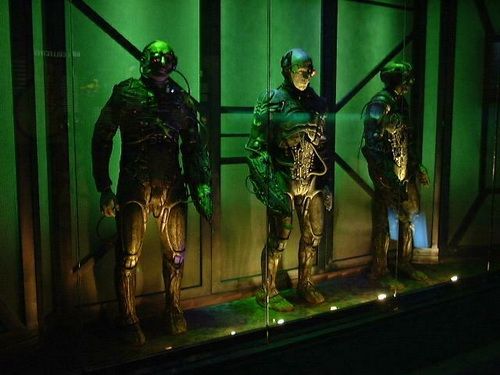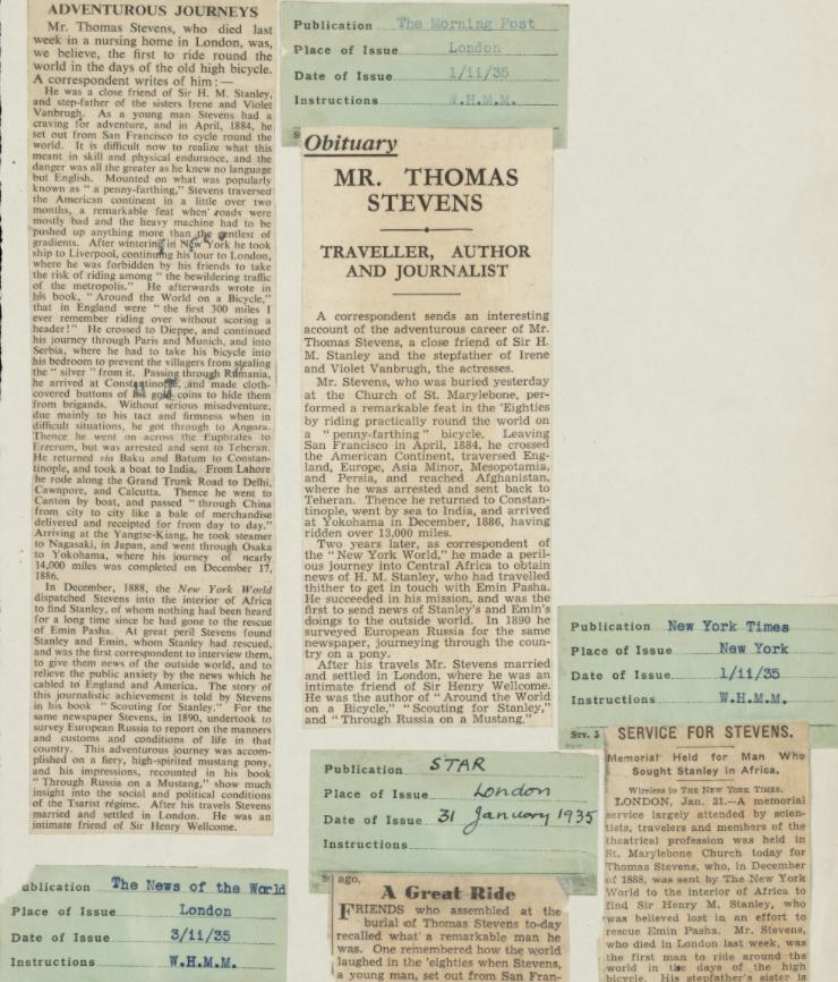In perhaps the most memorable episode of Star Trek: The Next Generation, Captain Jean-Luc Picard is captured by the ruthless symbiotic alien race, the Borg. The Borg assimilate Picard into their collective, making him part machine and all evil. I remember sitting too close to the television, watching nervously from the floor in the living room of my family’s apartment in Malden, a working class suburb of Boston. Clutching a Star Trek action figure in each fist, I was transfixed; what would become of my beloved captain? It was a two-part episode, a cliffhanger. Part One ended the season in the spring and Part Two didn’t air until September. It was a long, nervous summer.
As one might expect, Picard was heroically rescued by his crew and returned to his ship. The ship’s medical officer, Dr. Beverly Crusher, removed the creepy electronics that the Borg had installed in Picard’s head and by the end of the episode he looked himself again, save for some strange pigmentation where the metal had been.
But Picard was never really the same. He had experienced the Borg collective, and having done so, a bit of the Borg’s mentality was permanently etched onto his consciousness – a trait that the show’s writers exploited in the following seasons and in the 1996 feature film First Contact.
Ã¥
My first contact came when I was seventeen years old. I was a senior in high school when I started dating Sarah. She was this sweet blonde girl with freckles all over her face. She always wore jeans or corduroys and a button up shirt – always.
Her family, the Borgs, were originally from Texas. Mr. Borg brought the family to New England when his company moved here. They settled in a large cube-shaped house in a small town about an hour west of Boston. Sarah went to school with my sister which, embarrassingly, is how we met. We only dated for six months but in those months I found myself in locations and situations I had never experienced before. And by the time they moved back to the South, back to the Collective, I was a changed man.
Growing up, and right through high school, the geographical layout of my world stretched no further than a few miles outside of Boston. I had been on airplane once (to Florida, to visit my grandparents); McDonald’s was my favorite restaurant; and just about every item of clothing I owned was a hand-me-down. My closest friends and I spent our time listening to rap, rapping, reading rap magazines, and trying to live the life of rap stars. Our parents had not been to college, though most finished high school, and their greatest accomplishment to that point was securing their sons a place in a private school, a move that, they hoped, would lead directly to college.
The Borgs were rich. They owned two Ford Explorers before every soccer mom in the world had a sport utility vehicle. They went out to dinner more often than they cooked, didn’t buy anything that they hadn’t first seen in a catalog, and had poodles. The most tangible indication of their wealth to me at that time was the over-sized towels that hung in their bathroom. These towels were huge and plush and after using them I found it nearly impossible to go back to the threadbare towels, barely bigger than hand towels, which my family had been using since before I was born.
The Borgs didn’t know what to do with their daughter’s new boyfriend other than attempt to assimilate me. A month or two into our relationship, they started buying me clothes, taking me out to dinner, introducing me to their friends, and inviting me to stay over so I didn’t have to drive “all the way home.” They managed to be surprisingly subtle as they squeezed out my humble, blue-collar background and replaced it with their upper class bravado. Some things went easier than others; my Boston accent was their top priority.
“Did it take long to get here?” Sarah’s mom politely asked the first time I visited their house.
“Yah. This is wicked fah from weah I live. I’ve nevah been out heyah befoor.” I said as both Sarah’s parents visibly took a step back in horror before returning polite smiles to their faces.
To look at pictures of myself over those six months tells the story. In the photo from my first date with Sarah I’m wearing a baseball cap, an oversized shirt and baggy jeans – my dad’s actually – sagged so the crotch was near my knees. The pictures from New Years Eve show me in my first item of clothing from Abercrombie & Fitch, a sweater Sarah bought for me for Christmas. And finally, in May at my high school graduation I stand flanked by the Borgs, cap and gown slung over my arm, in Dockers khakis, a tucked-in white collared shirt, and a blue sweater vest.
Within a month it was over and they were gone. They hated Boston and hated the cold, and so Mr. Borg jumped at the first job that opened up anywhere in the South. They moved to Atlanta, selling their house with all the furniture still in it.
It was only a few months, so many years ago. But like Picard, being absorbed into the Borg collective for even a short time left me changed forever. On the outside, my clothes were different and more expensive, I purged myself of the Boston accent, and had shorter hair, but something deeper, more fundamental to who I was, had changed as well.
Growing up in Malden, surrounded by friends and families who were like me in just about every way that mattered, I hadn’t had much contact with many affluent people. It’s not that I didn’t know they existed – surely I must have come across some families like the Borgs before Sarah – but they hadn’t left any kind of impression, and I hadn’t deemed it necessary to form an opinion. But I had seen the other side. I knew now what was wrong with the way I grew up, and my friends, and the way they grew up. I knew how uneducated my parents sounded when they talked. I was embarrassed.
I spent my first semester of college hiding in my dorm room as often as possible, emerging only to go to class or dinner. I didn’t know who I was anymore, and I couldn’t stop myself from trying to figure out where I fit in, and where others fit in. What was my roommate Seth’s family like? They were from Long Island. Did that mean they had money or were they just too poor to live in Manhattan? What about Dave? He came from Santa Barbara. I had never been there but if Saved by the Bell was any indication of life in Southern California, he must be rich. And who, after all, was I? Only a relatively short distance from where I grew up, but at college, in the country.
Jay, my best friend from high school, went with me to college, but he didn’t seem to have any of the same problems fitting in. He made plenty of friends and never seemed to recognize that they came from places very different from Malden, places where everyone’s parents had gone to college, where unemployment checks are rarely collected, and where cars are given as birthday presents. And that was the difference. He hadn’t been abducted by the Borgs. He hadn’t been made to feel uncomfortable by the other side, made to feel inferior. So he was able to blend in like I would have, if I wasn’t sure it was impossible to mesh so easily with people from such different backgrounds.
I almost transferred to a college in Boston, thinking if I went to school in the city I may be able to reconnect with the person I was before the Borgs made me into somebody else. But I had the clear sense that running wasn’t an option; the problem was inside of me. The remains of the Borgs’ implants were still fixed deep, and no matter where I went, the way I saw people was permanently altered. It was the feeling that I no longer had a home. College felt foreign; I felt like an imposter. But how could I go back to Malden, back to that second floor apartment I had grown up in?
Ordinary college-sponsored activities, like bowling or the movies, left me perplexed. At the end of a seemingly endless night of searching out a group that I could belong to, I would lie in bed scratching at my temples. “What had gone wrong? Why is every conversation I have with everybody so awkward? Why can’t I just be me?”
And that, I found in time, was the key. Somewhere inside, perhaps laying dormant, was the kid from Malden who had always had friends, who was always up for anything, who was fun. I had to find him, bring him out, try with everything in me to set aside the filters I had been applying to every person and situation I had encountered since arriving at college.
It’s a continuing process. Several years after Captain Picard’s assimilation and subsequent rescue, he reencounters the Borg in First Contact and has to come to grips, all over again, with his onetime abductors. I’ve not seen the Borgs since they moved, but all these years later the strange pigmentation from their machinery still lingers. I remain caught between two worlds. Ill at ease in Malden, I chose to remain in that college town for a while. I tried for a year, in graduate school, to return to Boston, but I found that even there, in a somewhat familiar environment, I was far too changed for it to ever be the same.
Memories of my time on the other side haunt me – the towels, the poodles, the sweater vest. I’ve left those behind. Until moving to New York City not that long ago, I never seemed to have a reason to travel west of Boston. I’ve traded those things for Birkenstocks, corduroys, and wool hats. I’m somewhere in the middle now. Different, and aware. Suburban, and educated. And yes, somewhat assimilated.




